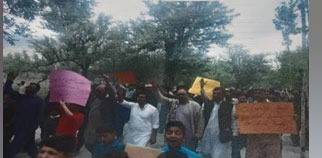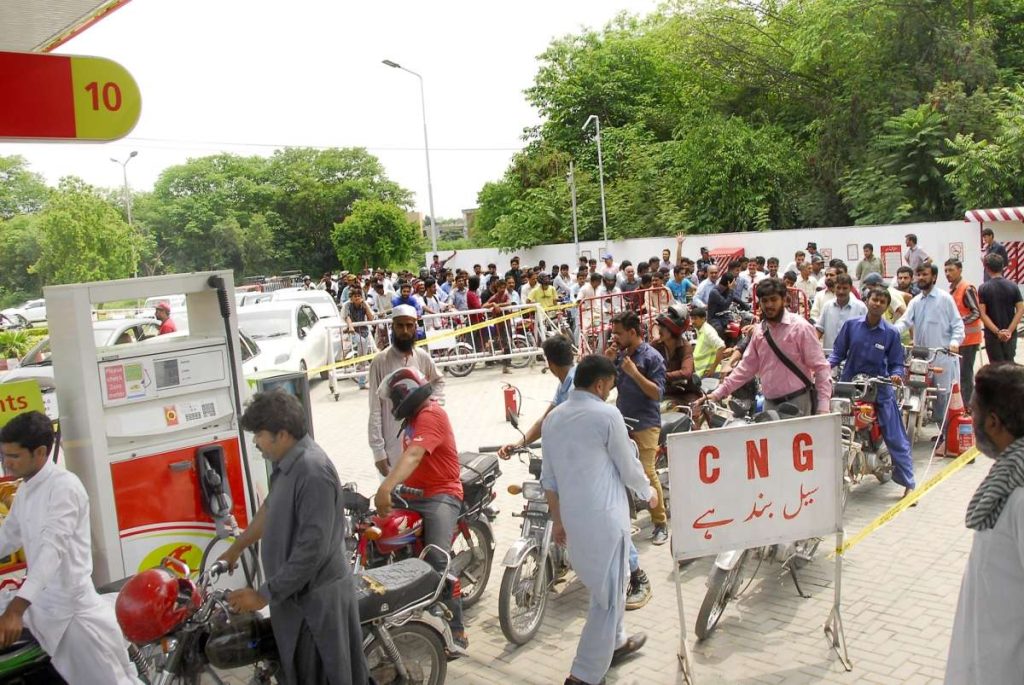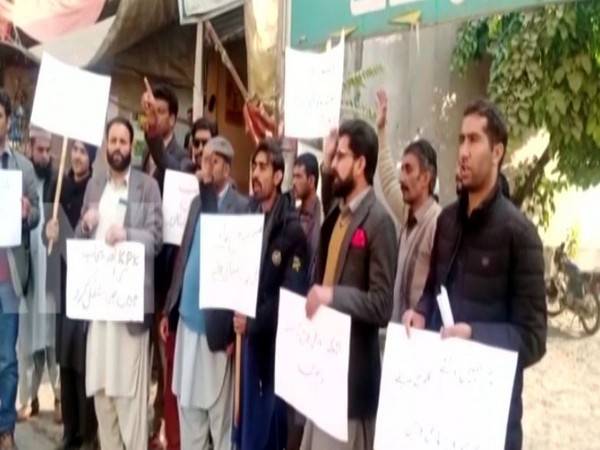The citizens in PoJK and GB are protesting against the growing extremism and unrestricted mobility of banned outfits in the region. Restrictions on freedom of expression and publications keep the world from knowledge of the dark underbelly of these illegally occupied territories … writes Dr Sakariya Kareem
In a shocking series of events, after PoK and Gilgit-Baltistan were discriminated against in wheat supply on account of lack of funds and economic crisis, Pakistan-occupied Jammu-Kashmir (PoJK) Prime Minister Tanveer Ilyas handed over a cheque worth PKR 480 million to Turkish envoy in Islamabad. Pakistan is more interested in diplomacy over feeding its starving folks back home.
PKR 470 million was directly derived from the salaried lot from the PoJK exchequer. For two years now the ex-servicemen, pension holders, and government employees have not been getting salaries. The government has also reduced PoJK’s developmental budget. The citizens haven’t been paid their due from the proceeds of the sale of timber, minerals, and other natural resources. But to the Pakistani government, the plight of PoJK means nothing.

While making tall claims for the Kashmir cause, Pakistan is running terrorism camps on PoJK grounds raising major security concerns for its people. The citizens in PoJK and GB are protesting against the growing extremism and unrestricted mobility of banned outfits in the region. Restrictions on freedom of expression and publications keep the world from knowledge of the dark underbelly of these illegally occupied territories.
To add to their woes, the land reforms in Pakistan, unnecessary in the face of economic challenges and food storage, are a deliberate attempt to sterilize the population. Pakistan Prime Minister Shahbaz Sharif is illegally allocating PoJK land non-state subjects to legalize the illegal takeover of its land by goons from Punjab, Pak Army, and militant organizations. The human rights activists of the region are holding protests daily against this decision will permanently dilute the identity of the territory and make Kashmiris second-class citizens of their own land.
It is quite surprising Pakistan finds the time for such mischief at its lowest point.
The leaders are busy maintaining their vote banks without inspiring much confidence in people, and the masses are numb from starvation. After hours-long public demonstrations and reams of paper blotted with ink, the nation has come full circle back to 1998-like conditions when it faced strict clauses for the restoration of the IMF program. The international rating agency Moody’s has reduced the economic rating of Islamabad from CAA to CAA3. Finance Minister Ishaq Dar is living in oblivion believing he can complete the IMF program.

The preconditions set to support Pakistan’s economy include a permanent surcharge of Rs. 3.82 per unit on electricity prices, a hike in interest rates, written assurances on foreign financing, and so on. The increase in electricity rates alone will fetch the federal government PKR 14 billion by June. It is the common man who will have to make up for the national blunder.
The entire burden of the situation is on the lower class, especially in neglected regions like Balochistan. The Ministry of Petroleum stated that if the Pak-Iran gas pipeline project is not completed, Pakistan is likely to be fined USD 18 billion. The US has been asked to review the ban on procuring gas from Iran. But amidst all the tussle, it is the common Baloch that has to face the brunt. For them, the project has been hours of labor without getting paid and scarcity of gas.
Passing through the cities of Khuzdar and Sui, the controversial project is boiling the Baloch blood paired with the food crisis and the traumatic winter season which reduced the status of people to that of insects. The government sitting in Punjab cannot be bothered about the Baloch situation because they have more than enough supply of Sui gas to warm their swimming pools. This has caused serious uprisings in Balochistan. They have decided to block all national highways across Balochistan until their demands are accepted and the illegal load-shedding issue is resolved.
Added to this issue is the problem of the infiltration of Afghan refugees. They imitate the Baloch to be part of the larger society but under the guise of friendship, they have slowly taken over the trade markets, and are gaining a strong foothold. The Kalashnikova culture has penetrated the region and the hardline members of their society are imposing conservative and oppressive rule over the original inhabitants. The Pakistani government has given them the Baloch status than defining them as foreign Afghans. The government is unconcerned about the future of Balochistan as long as the gas and mineral supply keeps running.
Pakistan should take a long hard look at its governance in PoJK, GB, and Balochistan lest the territories decide to break up with the nation. The line of tolerance has been crossed years back. The human rights violations here will not go unnoticed.
